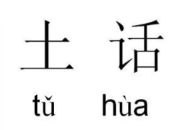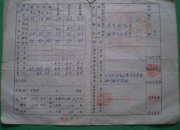必修三英语课文课件
时间:2021-08-31在进行必修三的教学时应该瑞鹤准备课件呢?下面是小编分享给大家的必修三英语课文课件,希望对大家有帮助。
第1课时 Talk about festivals:
some traditional Chinese Festivals
Spring Festival春节
Qingming Festival 清明节 Double Ninth Festival 重阳节
Double Seventh Festival 七夕节 Mid-Autumn Festival中秋节
Lantern Festival 元宵节(The Yuanxiao Festival)
Dragon Boat Festival 端午节
*Festivals are meant to celebrate important events.
*What’s your favorite holiday of the year?
*What festivals or celebrations do you enjoy in your city or town?
*Do you like spending festivals with your family or with your friends?
*What part of a festival do you like best——the music, the things to see, the visit or the food?
*Festivals and celebrations o f all kinds are held everywhere.
*They lit fires and made music because they thought these festivals would bring a year of plenty.
*Some festivals are held to honor the dead or satisfy and please the ancestors.
*Festivals can be held as an honor to famous people or the gods.
*The most energetic and important festivals are the ones that look forward to the end of
winter and to the coming of spring.
*Festivals let us enjoy life, be proud of our customs and forget our daily life for a little while.
第2课时【自主学习】单词预习学案
1.庆典,庆祝 n._________ v.__________
庆祝严寒的结束__________________________, ________________
2. 起源,由来n._________
Her mother is French __________(原籍)
宗教 n. _________ adj._______ 宗教信仰__________
3.到达n.________ v._____________
幸存,生还 n._____________v.____________
4. 独立 n.____________adj.___________
从英国人那儿获得独立______________
5.盼望春节的到来_______________ _______________
Special attention should be paid to __________(pronounce)the words.
6.与家人玩得开心_________ 取笑某人,拿某人开玩笑___________
I did it_____________(闹玩地) 搞某人的恶作剧____________
7.必要性,需要;必需品n._____ 必需的adj._______ 生活必需品______
8.守信用,履行诺言 __________ ___________ 食言____________
9. 道歉v.__________ n.___________ 因某事向某人道歉__________
Please accept my ______________(道歉) for that
Me to ___________ (道歉)to that fellow? No way!
He _________________(向我道歉) for stepping on my foot.
10. 淹没,溺死v. __________ pt ___________ pp ____________
a drowning man(译)_____________ a drowned body(译)_____________
drown oneself in work(译) __________ drown one’s sadness in wine __________
11. 哭泣,流泪v._____________ pt___________pp_________
He ______________(因失败而哭泣)his failure.
扫v._________________ pt._____________ pp._________________
【合作探究】
12. 用dress, clothes, clothing, cloth适当形式填空
1)The ________ (衣服)need washing, can you have _______(it, them)washed?
2)The shop sells children’s___________ only.
3)Please cover the table with a ___________.
4)____________________________(一件衣服)
5)People are expected to wear formal __________ in a wedding.
13. in memory of; in celebration of; in honour of; in the shape of, in search of 填空
1)The boys went_________________ something to eat .
2) He wrote a poem _________________his wife.
3).Many people joined them ______________(寻找那个失踪的孩子)
4).People eat food _________ skulls on festival of the dead.
5)A ceremony was held _______________those killed in the earthquake
【当堂检测】
1)The great flood _________________________many villages.那次大洪水把许多村子都淹没了。
2)You must ___________________________(为迟到向你朋友道歉)。
3).Finlan d _______________________Russian during World War I.
芬兰在一战中从俄国中独立出来。
4). The job will ___________________his parents (使他独立于父母)
5). Last summer I took a course on ______________.
A. how to make dresses B. how dresses be made
C. how to be made dresses D. how dresses to be made
6). He wept _______ joy at the news that he was admitted to Beijing
University.
A. for B. as C. to D. in
第3课时
内容 Reading—A sad love story
【自主学习】Step I :Reading Comprehension
1. Li Fang was heart-broken because _________
A. his girlfriend said goodbye to him
B. his girlfriend didn’t love him any longer
C. his girlfriend didn’t turn up
D. he didn’t love his girlfriend
2. Why couldn’t Niulang follow Zhinv to the Heaven?
A. Because he lost his way
B. Because he lost heart
C. Because he had to take care of the babies.
D. Because the Milkey Way stopped him
3. The truth of the story is that ________
A. Hu jin doesn’t love Li Fang any longer and want to say goodbye to him.
B. The two lovers waited for each other in different places.
C. Li Fang should have waited in the tea shop.
D. Hu Jin should have waited in the tea shop.
Step II: Translate the phrases
1. 出现,到达,露面 ______________
2. 守信用,履行诺言________________
2. 用咖啡解愁 ____________________
4. 在人间,究竟 ________________
5. 动身往家走 __________________
6. 把花和巧克力都扔掉_______________
7.展翅搭桥 __________________________
【合作探究】
Step III: Translate the sentences
1. He was not going to hold his breath for her to apologize.
_____________________________________________________________
2. It was obvious that the manager of the coffee shop was waiting for Li Fang to leave.
_____________________________________________________________
3. Finding that Zhinv was heart-broken, her grandmother finally decided to let the couple cross the Milky Way to meet once a year.
_____________________________________________________________idn’t turn up. She could be with her friends right now laughing at him.
_____________________________________________________________
Language Points:
1. But she didn’t turn up.
turn up: vi.1). To arrive 到达;来到;露面
We planned to meet at half past seven, but she never turned up.
2). (被) 发现。(被)找到
Don’t worry about the letter . I’m sure it’ll turn up.
Vt. 开大;调高(音量;热量等)
Could you turn up the radio?
短语链接:
turn down 关小(声音,灯等);拒绝 turn against 背叛 turn in 上缴;拐入
turn on/off 打开/关上 turn over 翻身/ 页;移交 turn away 打发走
turn out 结果证明是;生产; 制造 turn to 求助于;转向做…
【巩固练习】
用turn短语的正确形式填空:
1. He promised to come, but hasn’t _______ _________ yet.
2. She tried to join the army but _______ _______ _______ because of poor health.
3. Whenever in trouble, you can _______ _______ the police for help.
4. The weather _______ ________ to be fine.
5. Hundreds of people were __________ _________ from the island, so it was called “the land of tears”.
3. I don’t want them to remind me of her.
remind sb. of sth. 使某人想起某事;提醒某人某事
e.g. The photo reminded me of my childhood.
Please remind me of this afternoon’s meeting.
拓展: remind sb. to do sth. 提醒某人做…
e.g. Remind me to write to mother, please.
remind sb. that 提醒某人某事
e.g. I reminded him that he must go home b efore dark.
【巩固练习】
1).Travelers ________ ______ _______(被提醒) climbing the hill is dangerous.
2).He _______ ______ ______(提醒我)take an umbrella along.
3).The photo _________ ________ ______ ______ _____(使那老人想起) what he had suffered in the war.
3. It was obvious that the manager of the coffee shop was waiting for LiFang to leave.
It is / was obvious that … 显然, …是显而易见 的。 其中的it是形式主语
that引导的是真正的主语, 此句型可以改为:“Obviuously, …”
e.g. 1. Obviously, you misunderstood him.
2. It was obvious to everyone that he was very nervous.
【当堂检测】
1.在咖啡店遇到某人, _________2.下班后_______,3突然出现;到场;调大(收音机等)_____, 4.right now,______5.嘲笑,______6守信用;履行诺言______, 7.look forward to ~ing 8. all day_____9 be alone with sb______7, be like a fool_______, 8、hold one’s breath______, 9.drown one’s sadness in coffee,_________10. it is obvious that….._________, 10.wait for…to leave_________, 11.wipe the table________, 12., turn on the TV_______, 13.a weaving girl_____, 14.a herd boy______,15. fall in love with_______, 16.get married secretly_______________ 17., be married to sb._________, 19.return to Heaven, _______ 20.cross the river______, 21once a year_________, 22.on the seventh day of the seventh lunar month__________, 23. hear about_________,24 set off for home_________, 25, remind sb. of…__________ 26._____________在回家路上,27. hear…~do/ ~ing, _________28.wave at sb.______,29. have a gift for sb.___________ 30. a happy Valentine’s Day_________
Ⅰ.课文词汇填空(旨在复习本课文中的单词拼写和主要词语等) 根据课文内容完成下面语法填空,注意单词拼写和词语用法:
There are all kinds of celebrations1 (遍及)the world. Different countries have different festivals. Festivals of the Dead are held to honour the 2 (death) or to satisfy the ancestors. Festivals can also 3 (hold) to honour famous people. In China, the Dragon Boat Festival honours the famous 4 (古代的) poet, Ou Yuan. The most energetic and important 5 (节日 )are Spring Festivals 6 look forward to the end of winter and the coming of spring. At the Spring Festival in 7 , people eat such things 8 dumplings, fish, and meat and give children lucky money in red paper. Some western countries have very 9 (excite) carnivals, which take place forty days before Easter, usually in 10 (二月).
Ⅱ.课文大意概括(旨在训练用30个单词概括大意的能力) 阅读课文,试着用30来个单词概括课文大意或翻译下面短文。
文章告诉了我们世界各地五种重要节日并解释了人民为什么,在何时以及如何举行各种活动来庆祝这些节日。
The passage tells us __________________________________________________________________________________________________________________________________________________________________________________________________________________________________________
词组(共10小题;每小题0.5分,满分5分)
11. 有意义,行得通 ___________________________________________
12. (在我)看来,(依我的)观点 _____________________________________
13. 定居, 安下心来 _____________________________________________
14. 对……有影响 _______________________________________________
15. 为了纪念 __________________________________________________
16. 以……为自豪 _____________________________________________
17. 使某人想起某事 ____________________________________________
18. 对… 感到乐观 ____________________________________________
19. 使某人高兴的是 _____________________________________________
20. 导致某事,造成某事 ______
一 多项选择
1. In order to save the animals out of danger, they ____ a special place for them to live freely.
A. set free B. set off C. set out D. set aside
2. I didn’t mean to keep you waiting here for a long time. There are several traffic jams on the way. Can you ____ me?
A. apologize B. interrupt C. forgive D. behave
3. I am surprised that you should have been fooled by such a ____.
A. role B. deal C. test D. trick
4. It’s the ___ in the country to go out and pick flowers on the first day of spring.
A. use B. habit C. custom D. normal
5. ---Have you heard the story of The merchant of Venice?
--No. When and where does the story ____?
A. take up B. take off C. take on D. take place
6. Washington, a state in the United States, was named _____ one of the greatest American presidents.
A. in favor ofB. in need of C. in search of D. in honor of
7. The police are offering a $ 60,000 _____ for information about the killer.
A. reward B. priceC. awardD. prize
8. We invited her to dinner but she didn’t even bother to _____.
A. turn toB. turn upC. turn on D. turn down
9. On Halloween, children in American like to ____ as ghosts to frighten people.
A. make upB. put onC. dress upD. spy on
10. Almost all of us ____him for his courage in front of difficulty.
A. award B. admire C. accept D. forgive
11. All the teachers and students have got everything ready to ____ the 50th anniversary of our school.
A.congratulate B.celebrate C.inspect D.respect
12. Three university departments have been ______ $600 ,000 to develop good practice in teaching and learning.
A.promoted B.included C.secured D.awarded
13. In order to find a cure to the disease,he travels about the world _____ facts about little known diseases.
A.gathering B.searching C.collecting D.receiving
14. Tom _____ friendship and experience from the local residents, working with them for 3 years.
A.beat B.won C.gained D.made
15. History is about forgiving not forgetting. If some people forget history we should _____ them.
A.repeat B.remember C.remind D.r ecord
16. Since my childhood, I have been dreaming of _____ on a journey round the world. But till now, the dream doesn't come true.
A.putting off B.setting off C.taking off D.going out
17. The old man was almost dying, terrified with darkness and loneliness. He really _____ love and care.
A. turned to B. relied on C. starved for D. referred to
18. It _____ a few days later that he failed to pass the tests to get a place to study at the key school.
A. turned up B. turned out C. turned off D turned to
二 完成句子
1. 们家乡在过去的20年里发生了巨大的变化。(take)
Great changes ______________________________ in our hometown in the past 20 years.
2. 那老师因迟到向学生道歉。(apologize)
The teacher ______________________________________________ late.
3. 我一直渴望再次见到你。 (forward)
I __________________________________________________ you again.
4. 黄色的花朵总使他想起在乡下的童年。 (remind)
Yellow flowers always _______________________________________ in the countryside.
5. 今天上午我在办公室看到了她,她不该不经医生允许就回来上班。(come)
I saw her in the office this morning. She _____________________________
_________________ without the doctor’s permission.
6. 打扮成圣诞老人,他很受孩子们欢迎。 (dress)
_____________________________ Father Christmas, he is popular among
Children.
8. 他耍花招使我相信了他说的话。(trick)
He _________________________ make me believe what he said.
9. 她讨厌在公共场所被开玩笑。(trick)
She hates __________________________________ in public.
10. 他站在山顶欣赏大自然的美景。 (admire)
He stood on the top of the mountain ____________________________
__________________ .
11. 他看上去很困倦,昨晚一定熬夜写论文。 (stay)
He looks sleepy. He must ________________________________ last night,
writing the essay.
12. 别坐在那里什么也不干,来帮忙整理桌子。(do)
Don’t sit there ______________________. Come and help me with the table.
13. 天气许可的话,明天我会来的。 (permit)
I’ll come tomorrow, _______________________________ .
14. 这是一次小型的非正式的老同学聚会,你不必盛装打扮。 (dress)
It’s a small informal party among our old classmates--- you ____________
____________________________.
15. ---那边可能是谁呢? ---有可能是我们的语文老师,他总穿红衣服。(be)
--- Who________________________ over there?
---It may be our Chinese teacher who is always dressed in red.
第4课时 Grammar: Modal verbs:
may / might, can / could, will / would, shall / should, must / can的用法
【自主学习】
1. may 与might的用法
may 与 might
1)表示允许、许可。否定答语一般要用mustn’t,表示“禁止、阻止”之意。 --- May I watch TV after supper?
--- Yes, you may. / No, you mustn’t.
2)在表示请求、允许时, might比 may的语气更委婉一些。在日常口语中,用can征 询对方意见更为常见。 ---Might I use your telephone?
--- Yes, please.
--- May / Can I go home now?
--- Yes, you may / can.
3)表示可能性的推测,含有“或许”“大概”“可能”之意,用might代替may时,则语气显得更加不肯定。
What he said may be true.
She may come tomorrow.
He might have some fever.
2. can与could的用法
can 与 could
1)表示能力Some of us can use the computer now, but we couldn’t last year.
2) 表示客观的可能性It will be sunny in the daytime, but it could rain later on this evening.
3) 表示请求和允许 --- Can I go now?
--- Yes, you can.
4)表示请求,口语中常用could代替can,使语气更加婉转Could you wait a few day for the money?
Could you please show me the way to the station?
5)表示惊异、怀疑、不相信的态度(主要用于否定句、疑问句和惊叹句中)
Can this news be true?
It can’t be the headmaster. He’s gone to Beijing.
How can you be so foolish!
3. will与would的用法
will与would 1).用于表示意志或意愿。Will指现在,would指过去 I will never do that again.
They said that they would help us.
2).表示请求、建议等,用would比用 will委婉、客气些 Will you please take a message for me?
Would you please pass him the book?
3).表示习惯性动作,译为“总是”“惯于”。Will指现在,would指过去 Fish will die without water.
Every evening, she would sit by the window, deep in thought.
4).表示预料或猜想 It would be about ten when he left home.
I thought he would have told you about that.
5).用于否定句中,表示“不肯”“不乐意No matter what I said, he wouldn’t listen to me.
4.shall与should的用法
shall 1)用于第一、第三人称疑问句中,表示说话人征求对方的意见 What shall we do next?
Shall I do the washing-up?
When shall my brother be able to leave hospital?
2)用于第二、第三人称的陈述句中,表示 说话人给对方的命令、警告、允诺或威胁
You shall go with me. ( 命令)
You shall have a new dress for your birthday.(允诺)
He shall be punished.(威胁)
should
1)表示劝告或建议,作“应该”讲 We should be strict with ourselves.
You should keep your promise.
2) 表示推测,作“可能”、“该”讲The roads should be less crowded today.
I should have finished reading it by Friday.
3)Why / how + should结构表示说话人对谋事不能理解、感到惊异等意思,译为“竟会”
Why should you be so late today?
(你今天怎么来的.这么晚?)
I don’t know why you should think th at I did it.
(我真不明白你凭什么认为这件事是我干的。)
5. must, may (might) 和can表示“推测”的用法
must 只能用于肯定句,表示可能性很大的一种推测,作“肯定”“一定”讲 (1)--- Look, someone is coming. Who can it be?
--- It may be the headmaster.
---It can’t b e him. He has gone to Shanghai.
--- Then it must be Mr Zhang. He looks like the headmaster.
(2)--- What can they be talking about?
--- They may / must be talking about the question raised at the meeting.
(3) --- Can they have finished the work?
--- Yes, they may / must have finished it.
--- No, they can’t have finished the work so soon.
--- Then they must have played so much.
May /might 用于肯定句中(可能,或许,大概);用于否定句中(可能不)。表示可能性较小的一种推测
can 表示推测时,只用于否定句和疑问句中
【合作探究】:I. 单项填空:
1. Write in simple English in order that everybody ______ understand
you. A. may B. must C. should D. will
2. You _______ miss the lecture, though you ______ have it.
A. mustn’t; needn’t B. needn’t; mustn’t
C. mustn’t; mustn’t D. can’t;
needn’t
3. --- Better not have the operation right now.
--- ________.
A. I mustn’t B. I shouldn’t C. I won’t D. I can’t
4. The train was ten minutes late, so I ______ have run all the way from my house to the station.
A. couldn’t B. shouldn’t C. needn’t D. mustn’t
5. I’m not going simply because I don’t see why I _______.
A. will B. would C. should D. shall
6. --- It must be Mr. Li who did it.
--- No, it _____ be Mr. Li.
A. mustn’t B. can’t C. wouldn’t D. may
7. --- It’s getting cloudier and cloudier.
--- Yes, I’m afraid it ______ be raining soon.
A. must B. should C. might D. can
8. I promised to get there before 5 o’clock, but now the rain is pouring
down. They _____ for me impatiently.
A. may wait B. ought to wait C. could wait D. must be waiting
9. --- ______ you make so much noise?
--- Sorry, I’ll take care not to.
A. Must; B. Can C. May D. Would
10. On Sundays when I was a child, Father and I _____ get up early and go fishing.
A. could B. would C. might D. should
11.I ______ have written to him because he phoned me shortly afterwards
A. ought to B. must C. couldn’t D. needn’t
12. --- _____ the plane have taken off on time?
--- I’m afraid not. The fog was too thick then.
A. Need B. Should C. Can D. Must
13. This looks like a different kind of stone. What _____ we do with it?
A. will B. shall C. would D. do
14. He has much money at the beginning of every month, but by the end of it he _____ little left.
A. can have B. will have C. should have D. need have
15. How _______ you say that you really understand the whole story if you have finished only part of the article?
A. must B. need C. may D. can
【当堂检测】II. 用适当的情态动词填空:
1. There is 20 minutes left. We _______ (not) have to be in such a hurry.
2. Where is my watch? I really can’t find it. Where _____ it be?
3. The doctor told the old man that he ______ avoid eating fat.
4. It’s too late. I think he ______ go to bed.
5. ______ you mind my troubling you with a few questions?











